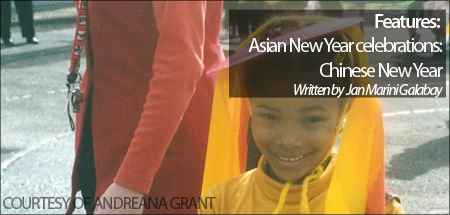
Introduction
Chinese New Year this year, which is the year of the Rabbit, starts on Feb. 3, 2011. It is not like the traditional American New Year. Junior Stephanie Lin says, “We usually celebrate it for three days or less.”
Moreover, every year in the Chinese calendar is paired with 12 different animals, with the rat being the first. The “shengxiao”, or Chinese zodiac, relates to the animals and their presumed personalities.
Junior Siv Vuch Wu says, “I was born on the year of the rooster. I’m supposed to be organized, responsible and a deep thinker.”
Traditions
Senior Tai Wu explains, “Before the actual occasion, people clean up their houses because it sweeps away the bad lu ck. And we also take off the old stuff before the New Year comes.”
People decorate their houses with colorful streamers and bold colors like red and gold which signify wealth and happiness. Freshman Jansen Yan adds, “We put out signs to drive out spirits and bring good luck. We also prepare…bowls of chocolate coins. It signifies wealth.”
Other than fixing their homes for the year to come, most people, especially those in Asia, celebrate the festivity with their neighbors. Junior Lucy Wu, who experienced Chinese New Year in Cambodia, says, “We see everything in red like in front of the houses. Music will be loud from house to house and people will gather and [use] firecrackers.”
Clothes
In addition, wearing the traditional Chinese dress is also customary. Senior Andreana Grant, who participates in Chinese New Year just to experience the fun and excitement, shares, “We used to have Chinese outfits. I have…a traditional silk dress.”
Games/Activities
One of the most recognized activities is the parade with its well-known Dragon Dance.
Yan says, “Just seeing the lion dance for the first time was really exciting…there are a bunch of people in the parade and all are excited. [It is] just a really good mood overall.”
Games and other indoor activities also add some fun. Yan adds, “My grandparents play Mahjong, but I don’t.” Lin says, “We watch special shows like performances or talk shows, or we play with a few dice.”
Food
Traditional Chinese New Year food, either by its appearance or pronunciation, symbolizes old cherished beliefs. “We must have fish. The Chinese pronunciation of fish means abundance and we eat it last,” says junior Eric Ho. “We also have rice cakes. It symbolizes rich, sweet life.”
On the other hand, Lucy Wu’s celebration is bigger. She says, “We will have three days in a row to give thanks to God. We will have chickens, cans of sodas, seven vegetable dishes with meat call ‘Jab Chay’ and fruits.”
Gifts
Siv Vuch Wu says, “The adults give us red envelopes with money in it. The words on the envelopes mean luck. Then, we go out and spend it.”
Traditions vs. Modernity
However, Aragon students, who have experienced the age-old traditions in Asia conclude that it is different from the celebration here in America.
Lucy Wu says, “It’s more fun [in Cambodia] because it is like a national holiday. Here, during Chinese New Year, my parents still need to go to work and we still have school. Also, I have fewer relatives here so it is just a small gathering.” Senior Martin Young says, “Chinese people are becoming adjusted to the American culture, [so the celebration is less traditional].”
Chinese New Year is a celebration full of treasured traditions and beliefs. It is a time for the families to get together and give thanks to the blessings of the ending year. As the New Year begins, people are given a second chance to change, to be hopeful and to be happy.




